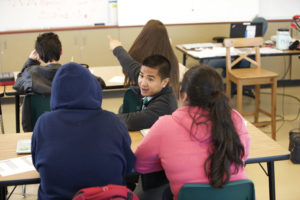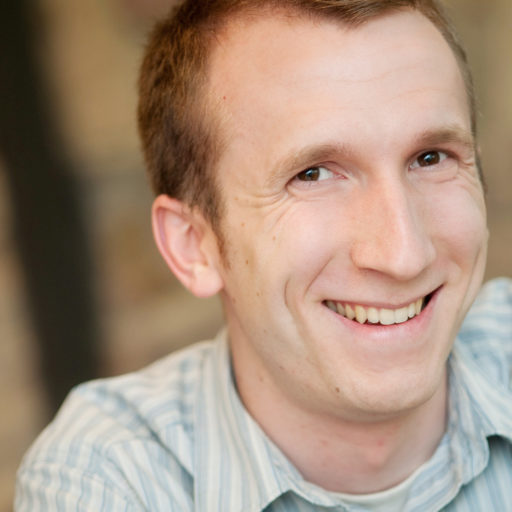I first noticed the root of a deep problem when I was talking with a student teacher I knew and she asked me, “What are you doing in your robotics class to promote equity?”
My mind reeled with the assumptions I read into the question:
- Equity is promoted through specific, discrete acts, not dispositions.
- What more could I be doing with equity?
- My purpose ought to be to promote equity, and I should be able to articulate the steps I have taken towards that purpose.
In trying to answer genuinely, I felt a wave of hesitation, guilt, and a sense of failure wash over me. What was I really doing? What should I have been doing that I haven’t found the time to? Am I just a heap of excuses? Why did her question about equity, so common in teacher prep lingo, and so simply an inquiry aimed at understanding more about my teaching, make me feel like I was a failure?
In this question, I have come to realize that two distinct problems collided: what my priorities in teaching should be, and how I see and treat myself when I do or do not meet those priorities. The conflict was a confluence of what I felt a successful teacher should be doing and how I reflect on my struggles.
Through my teacher prep program and my work with the Knowles Teaching Fellowship, I developed a multi-faceted image of what teaching was: a pristine ideal with well-explored angles that I could see clearly for myself. I had goals around equity—the touchstone I’m exploring throughout this essay—as well as pedagogy, social justice, personal connections, and collegial relationships.
Without question, defining our goals as educators is important. They are what guide us in thinking about what we do and help us grow in ways that support our shared image of an ideal educational system. Our goals are not a target—a simple bullseye to hit by standing a standard distance away and aiming. It is a multidimensional, many-sided, different-from-every- perspective, evolving, sometimes hazy, and extraordinarily beautiful entity that we work to approach from many directions at once. We all learn to value a target, or at least some dimension of it. It is the beginning of defining ourselves as educators. At the same time, no one holds precisely the same target as someone else.
I don’t think I was aware of this until recently, but as I had this multifaceted target laid out for me, I also internalized the narrative of “I must get to that target. If I don’t, I’m not doing what I should, and that is bad.” And not just one part of the target; all of it. It became a moral imperative for me to push myself to achieve every goal that was framed for me.
I was of course reminded by my program that “the first years of teaching are quite challenging,” but when I heard the word challenging, I now realize that my internal dialogue converted that into “if you are good enough, and work hard enough, you will get there.” This accentuated every shortfall that I saw in myself. When I wasn’t reaching my ideal, it was because I hadn’t done enough.
This attitude was a hidden undercurrent for my first few years of teaching. I continually viewed everything I did in terms of how short of the target I fell and saw many pieces of my perfectly envisioned practice that I didn’t do. I didn’t find time to go meet with the girl’s STEM club about taking my robotics class. I didn’t make a personal connection with the families of each of my students. I didn’t track the voices that are most often heard in my classroom and consider who I was valuing more. I didn’t. Therefore, in my head, I wasn’t good. And every reason I had for what I didn’t do, I called a cop-out; no matter what, I still should, and when I didn’t, it was because I was a failure.
What I should do is teach as well as I can and keep growing in areas that stretch me.
Those failures hit me hard. As a result of my consistent negative self-talk, I began to doubt that I truly valued my goals. If I really valued the target, wouldn’t I be reaching it? When I struggled to adequately act on equity considerations in my classroom, I saw myself as being just as bad as someone who thought equity wasn’t a problem worth considering. It was easy to tell myself that I was bad; I had all this evidence. And why should I keep teaching when I was “bad?” I didn’t see the cost my attitude carried—I cut myself down by continually doubting the core of my practice.
This blade can be turned against others as much as against ourselves. In the transition from teacher preparation to teaching, the reality of differing targets and priorities amongst our colleagues and administrators can be jarring. I felt resonance with my school administration that seemed to support my questioning of traditional physics teaching but felt paralyzed with frustration in working with colleagues who, to my first impression, seemed to not think that pedagogical questions were a high priority. It took me time to realize that the targets that they had were simply different from my own, and they were just as motivated to move towards effective education as I was. The difference was in the path they were choosing.
I believe it is important to accept that there are many different targets, and every person in education is trying to hold themselves towards their internally-defined target. Judging others based on how we see them meeting our own target, without seeking to understand how they see their targets, only serves to hinder our collective capacity to make positive change.
Keeping our eyes fixated on the target can even make a new teacher miss the narrative that once you start working at a school, the path to your target is not straight. You will have to adapt and compromise and struggle, and there are all sorts of costs and risks in your context that you have to determine before deciding what steps you take towards what goals. What we should do becomes weighed down with the personal costs of each act. It becomes more than just a cardinal direction to move towards, and we sometimes must spend a lot of time dismantling a barrier without actually making visible progress before we can resume approaching our goal.
The blade of “you should do more” exists to point us to the target we hope to attain. To help us cut a path through the obstacles blocking our way. To make us open our eyes to that which too many people ignore. To help us address the hidden inequities around us, to make us question and unearth which parts of our practice are helpful and which are not. To urge us to grow towards every facet of our target.
Carrying that edge can be harmful to ourselves. Rather than serving as a call to action, I used that blade to hurt myself, to berate myself internally for not doing enough. I felt ashamed of the work that I did because I could list innumerable moral imperatives that I failed to obey in my practice. I did more than just try to hold myself accountable: I punished myself for my limited progress.
It has taken me a long time to accept that the part of the target that you love most will be the one that you push yourself most on, and that is okay. I fundamentally love teaching my content, and thinking about how I structure my course to help students see what I see is what makes me most excited. Equity in teaching is an important facet of my practice, but it isn’t what drives me to teach on a day-to-day basis, and my work on equity may not be immediately visible in my teaching.

When we decide that every ideal a teacher holds must be visibly demonstrable in their practice, we limit ourselves to what we can articulate in a few, hard-hitting, lingo-supported sentences. We discount the ways in which our philosophy permeates our actions in small ways. The way I check myself on who I spend extra one-on-one time with. The added grace I give towards students who otherwise may be seen as out of line. The phrasing I choose in my feedback for each student. We have to see and count those hard-to-articulate acts in our own work as being valid and valued, even when they are not necessarily the greatest leap possible towards that facet of good teaching.
What I’m still trying to believe is that you’re not necessarily a detriment to the cause if the cause isn’t the thing for which you fight hardest. It doesn’t have to be, “If you’re not 100% with us, you’re against us.” The psychological damage I inflicted on myself by focusing so strongly on what I “should be doing” had been a great source of the mental strain that tipped me towards burning out, and often still does. I couldn’t do everything that I felt like I should, and that made me feel like I really should just stop.
Now I feel that what I should do is teach as well as I can and keep growing in areas that stretch me. If I cut myself to shreds with my own expectations to reach the imperative target in my head, I will end up removing myself from the system, because I will ultimately view myself as a detriment to the field. My greatest imperative is to keep pushing myself forward towards my target and not cut myself down for the things I have not yet done. The costs that I weigh in choosing what I do don’t mean that I am straying from the “right path;” they are very real choices that we all have to make in order for us to continue to function as educators over years and years.
I must give myself the grace to value the subtle work that I do towards the goals that underpin my work. This is not meant to be a call to complacency. Rather, this is meant to be a reminder that our real moral imperative is that we sustain our practice. Even when we fail to reach our targets, the value we add is from trying. Being so self-critical and hyper-conscientious that we are paralyzed and fearful serves nobody, and potentially can cost the field an educator whose impact is positive.
And, even as I write this, the voice in my head says, “Shouldn’t you have done more?”
I am trying to learn to say back, “Thanks for the reminder, I’m still trying. I still see the target, and it is still important to me.”
Alex Steinkamp, a Knowles Senior Fellow, is entering his fifth year of teaching at Olympia High School in Olympia, Washington, where he continues to grapple with his sense of identity as an educator. Reach Alex at alex.steinkamp@knowlesteachers.org.




